Photographs: Cameron Spencer/Getty Images
The term capital originates from the Latin capitalis, literally "regarding the head". Hence a capital crime was originally one punished by severing the head from the body.
Capital punishment has in the past been practiced by most societies, although currently only 58 nations actively practice it, with 96 countries having abolished it (the remainder having not used it for 10 years or allowing it only in exceptional circumstances such as wartime).
It is a matter of active controversy in various countries and states, and positions can vary within a single political ideology or cultural region. In the European Union member states, Article 2 of the Charter of Fundamental Rights of the European Union prohibits the use of capital punishment.
Rediff.com brings you a list of countries in chorological order, that still practice capital punishment.
...
China: Unspecified number
Image: Since last year, China has executed 1000s more people than the rest of the world put togetherPhotographs: Jason Lee/Reuters
Capital punishment in the People's Republic of China is currently administered for a variety of crimes, but the vast majority of executions are for cases of either aggravated murder or large scale drug trafficking.
China executes the highest number of people annually, although other countries (such as Iran or Singapore) have higher execution rates per capita.
Article 49 in the Chinese criminal code explicitly forbids the death penalty for offenders who are under the age of 18 at the time of the crime. China has a unique form of sentence: "death sentence with two years' probation".
This sentence is generally reduced to life imprisonment after two years if no new crime is intentionally committed during the probationary period. Capital punishment in China can be politically or socially influenced.
In 2003, a local court sentenced the leader of a triad organisation to a death sentence with two years of probation. However, the public opinion was that the sentence was too light.
Under public pressure, the supreme court of China took the case and retried the leader, resulting in a death sentence which was carried out immediately.
Death sentences are usually executed by means of shooting or injection.
...
Iran: 252 executions in 2010
Image: Tehran Prosecutor General Saeed Mortazavi adjusts his hair as he attends an execution by hanging in TehranPhotographs: Morteza Nikoubazl/Reuters
Capital punishment is legal and applied in Iran.
Capital crimes are murder, rape, adultery, pedophilia, sodomy, drug trafficking, moharebeh (waging war on people or God) and mofsed-e-filarz (spreading corruption on earth).
The overwhelming majority were drug traffickers, and virtually all executions are carried out for murder, aggravated rape, large scale drug trafficking, and armed robbery (cases usually resulting in rape/death).
Iran has garnered Western media attention and criticism for allegedly carrying out lethal punishments, such as stoning,and executions of minors, despite having signed the Convention on the Rights of the Child, which forbids executing "child" offenders for crimes committed under the age of 18.
Hadd crimes: Iran has garnered Western media attention and criticism for allegedly carrying out lethal punishments, such as stoning,and executions of minors, despite having signed the Convention on the Rights of the Child, which forbids executing "child" offenders for crimes committed under the age of 18.
Hadd crimes:
A hadd (or hudud) crime is a class of crime laid down in the Koran. Such crimes are also tried under Iran's Hadd Laws, and their punishments were laid down in the Koran and Hadith. Hadd crimes can be proven by a confession, or two witnesses (four witnesses to adultery), or at least definite circumstantial evidence. Hadd punishments are generally, depending on the crime, punishable by death by hanging or stoning, or imprisonment, or in some cases, corporal punishment.
Tazir crimes:
Tazir crimes are crimes that are not hadd crimes, or crimes that were unable to be punished as hadd crimes due to the heavy standards of proof required and the crime being less serious.
It can range from being a minor misdemeanor (such as a traffic violation) to a second-degree felony. It also covers drug trafficking. It covers all crimes, including ones that could also be prosecuted as a hadd crime.
Most of Iran's executions are related to drug trafficking, a recent announcement by the judiciary said that 74 percent of executions in Iran were drug related.
...
North Korea: More than 60 executions last year
Image: Members of the North Korean ArmyPhotographs: Reuters
Capital punishment in North Korea is used for many offences, such as grand theft, murder, treason, espionage, political dissidence, defection, consumption of media not approved by the government, and proselytising religious ideals that contradict practised ideology, with current knowledge depending heavily on the account of defectors.
Executions are carried out by firing squad in public.
The North Korean government makes it very difficult for foreigners to enter the country and strictly monitors their activities when they do.
Aid workers are subject to considerable scrutiny and excluded from places and regions the government does not wish them to enter.
...
Yemen: One of the most prolific users of the penalty
Image: An effigy of Yemen's President Ali Abdullah Saleh is hung on a street lamp by a protester in SanaaPhotographs: Ahmed Jadallah/Reuters
Yemen is one of 59 countries which retains the death penalty, and one of its most prolific users, according to Amnesty International. It is deployed for a variety of violent and non-violent crimes including apostasy and adultery.
Last year Yemen executed 13 people, according to those Amnesty International has verified. But as no official figures are released the real toll could be far higher.
All of those died by firing squad but in recent years there have been reports of stonings and beheadings.
The deeply religious desert country has a poor human rights record and it is unclear if al-Raghwa had a fair trial.
Under sharia law, which applies in Yemen, relatives of the victims of certain categories of murder have the power to pardon the offender in exchange for compensation, grant a pardon freely or request his or her execution.
...
United States: Use of lethal injection
Image: Aaron Dickson, President of the Board of Directors of the Texas Prison Museum stands Old Sparky, the Texas electric chair in which 361 killers were executed. The electric chair is in an exhibit called Riding the Thunderbolt in the non-profit Texas Prison Museum's new facility in Huntsville, TexasPhotographs: Richard Carson RJC/Reuters
Capital punishment in the United States, in practice, applies only for aggravated murder and more rarely for felony murder.
Capital punishment was a penalty at common law, for many felonies, and was enforced in all of the American colonies prior to the Declaration of Independence. Following the American Revolution the Anglo-American common law was maintained in the United States, capital punishment with it.
The methods of execution and the crimes subject to the penalty vary by jurisdiction and have varied widely throughout time, though today they are usually done by poisoning the criminal.
Thirty-four jurisdictions have banned it by law, others have suspended its use, and others are trying to expand its applicability.
Crimes subject to the death penalty vary by jurisdiction. All jurisdictions that use capital punishment designate the highest grade of murder a capital crime, although most jurisdictions require aggravating circumstances.
Treason against the United States, as well as treason against the states of Arkansas, California, Colorado, Georgia, Illinois, Louisiana, Mississippi, Missouri, and Washington are capital offenses.
Forty six death sentences were carried out across the US last year.
...
Saudi Arabia: Beheading by sword
Image: Saudis raise their swords during a traditional dance performancePhotographs: Mohammed Mashour/Reuters
Saudi Arabia has a criminal justice system based on a hardline and literal form of Sharia law due to Islam being the official state religion.
The death penalty can be imposed for a wide range of offences including murder, rape, armed robbery, repeated drug use, apostasy, adultery, witchcraft and sorcery and can be carried out by beheading with a sword, stoning or firing squad, followed by crucifixion.
The 345 reported executions between 2007 and 2010 were all carried out by public beheading.[6] The last reported execution for sorcery took place in 2007 and three subsequent convictions for witchcraft did not result in execution.
There were no reports of stoning between 2007 and 2010, but between 1981 and 1992 there were four cases of execution by stoning reported.
...
Libya: Firing squad
Image: Image for representation onlyPhotographs: Amnesty International
Courts continued to hand down death sentences in Libya in 2010, mostly for murder and drug-related offences. Executions continued to be carried out by firing-squad.
Eighteen people, including nationals of Chad, Egypt and Nigeria, were executed at the end of June after being convicted of premeditated murder. Libya was reviewed under the Universal Periodic Review on 9 November 2010.
With regard to the death penalty, the government representatives stated that it was applied in aggravating crimes and that since 1990, the death penalty had been applied in only 201 cases.
To date, the Libyan government has resisted moves towards the abolition of the death penalty. In December 2007 and 2008, Libya was among the minority of states that voted against successful UN General Assembly resolutions calling for a worldwide moratorium on executions.

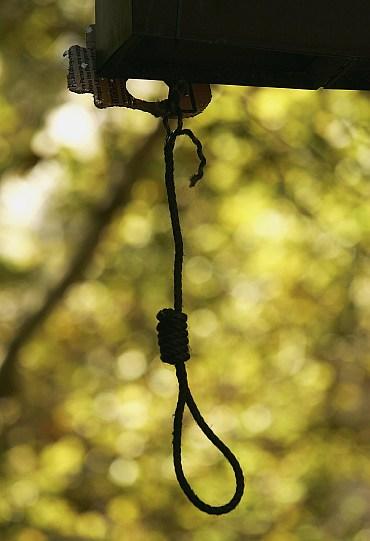
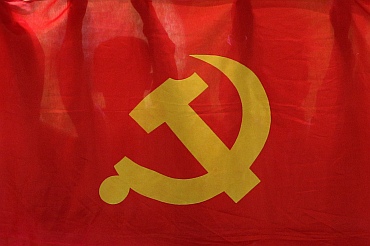
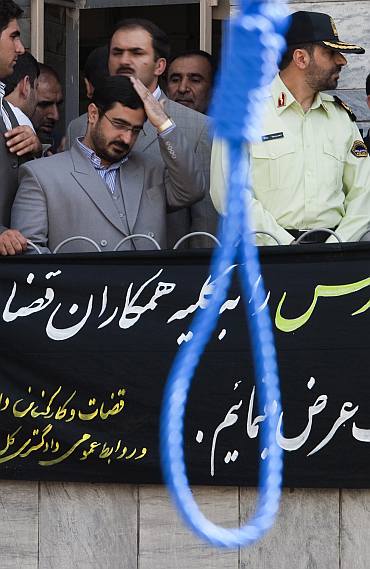
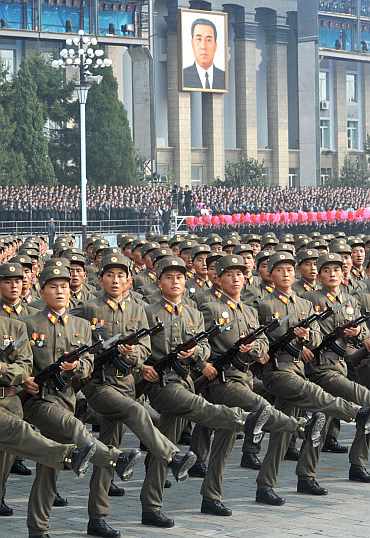
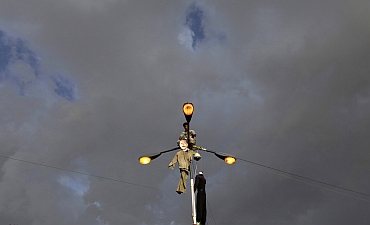
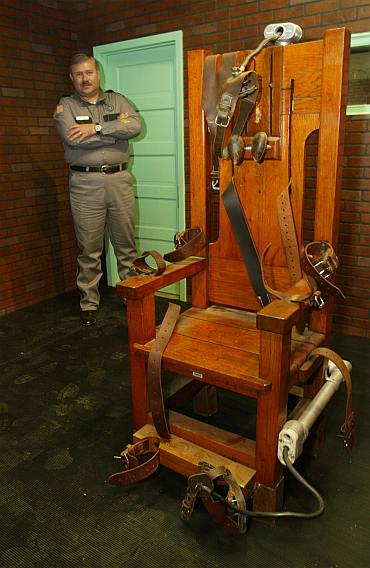
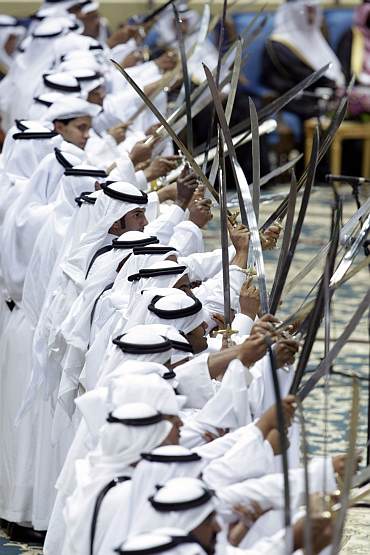

article